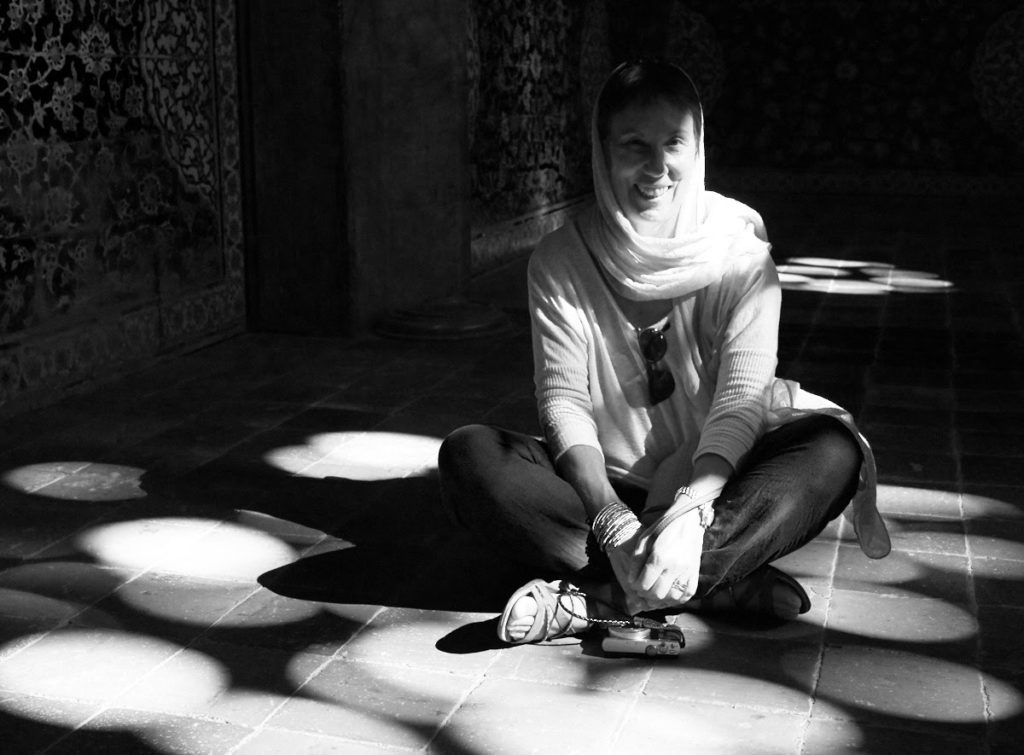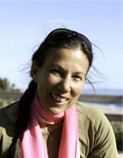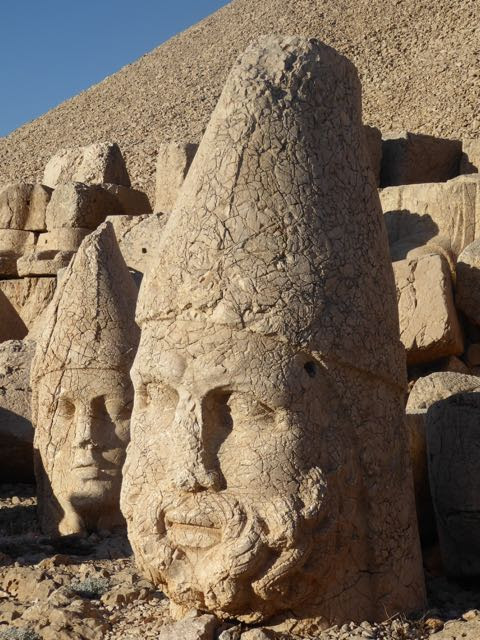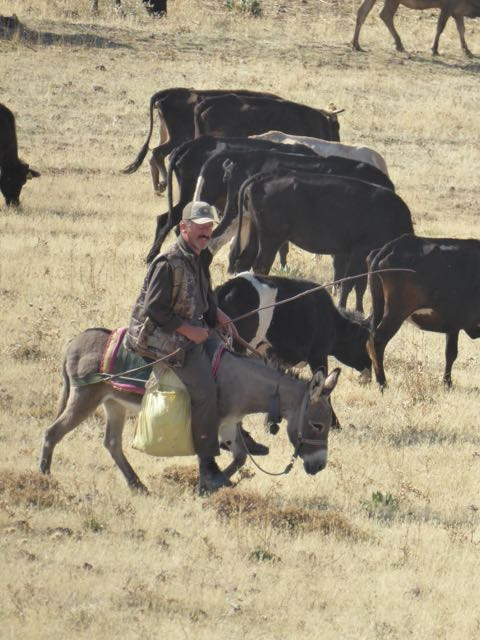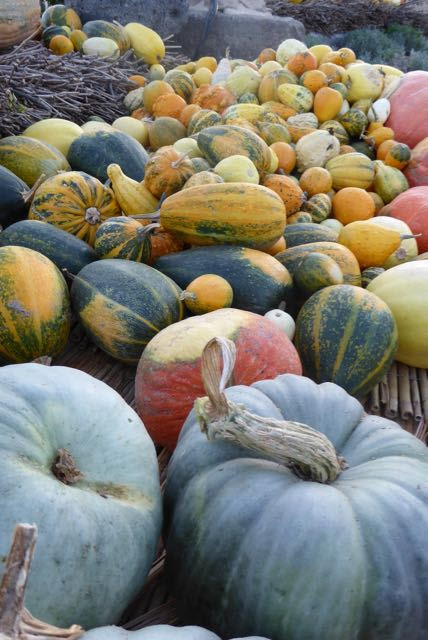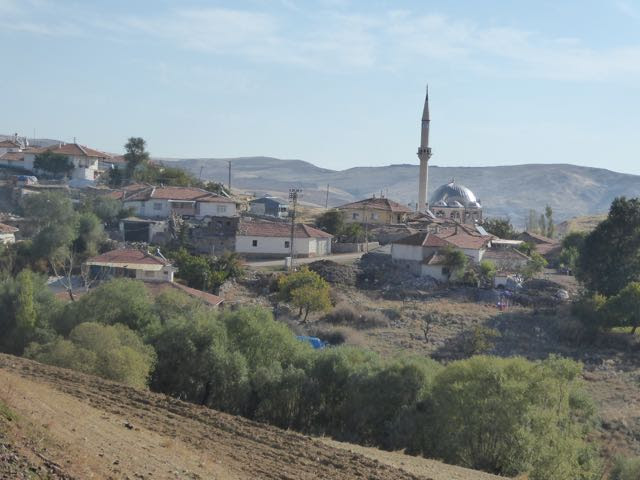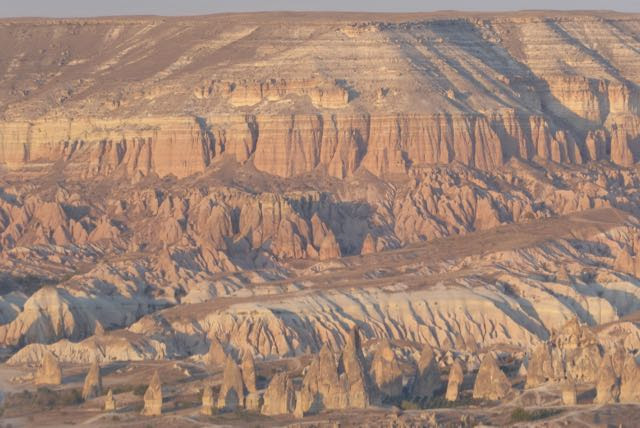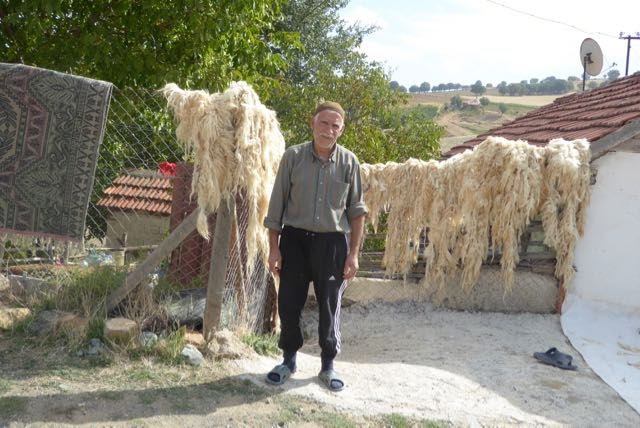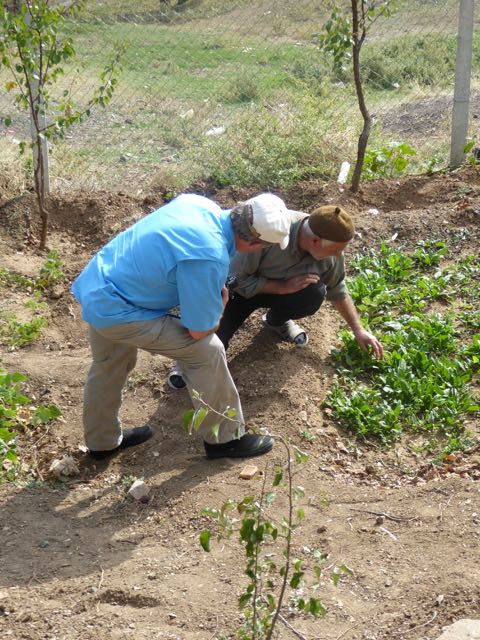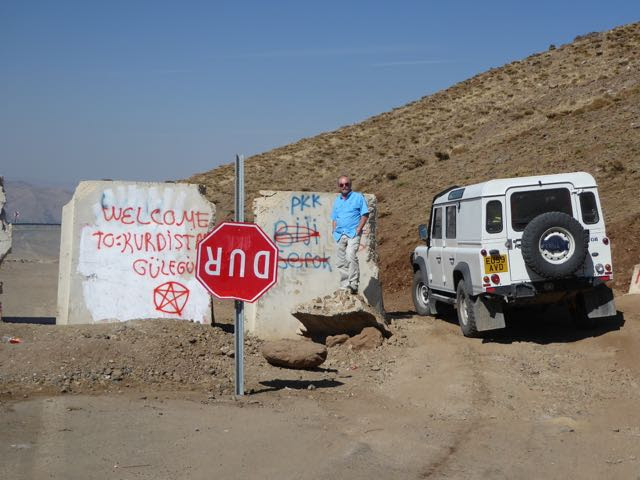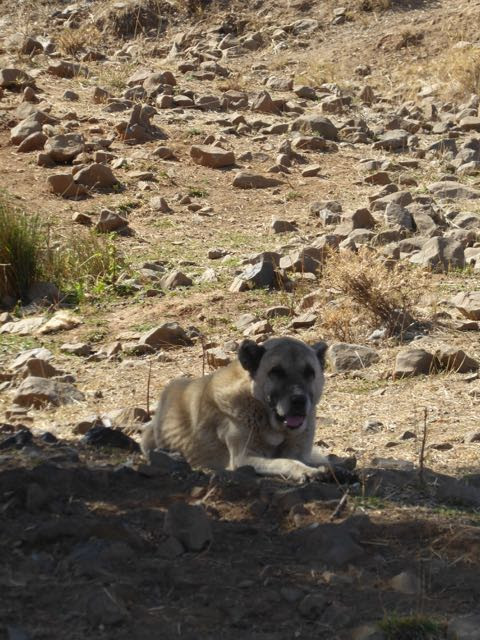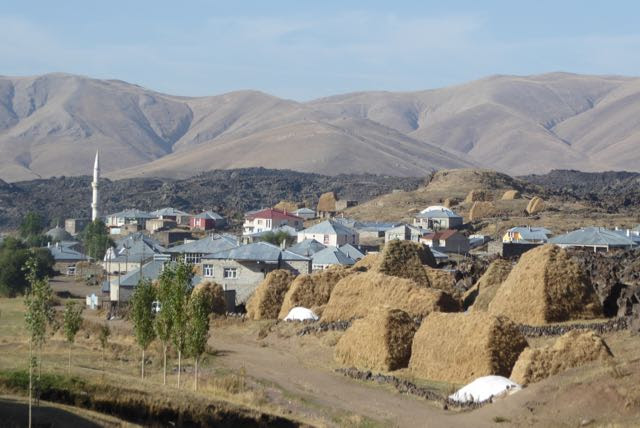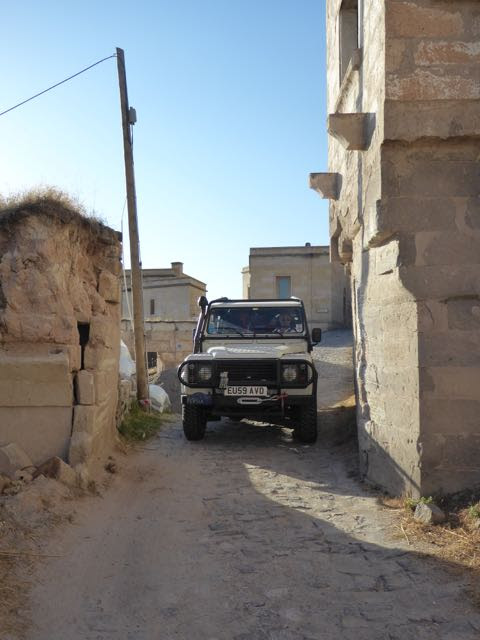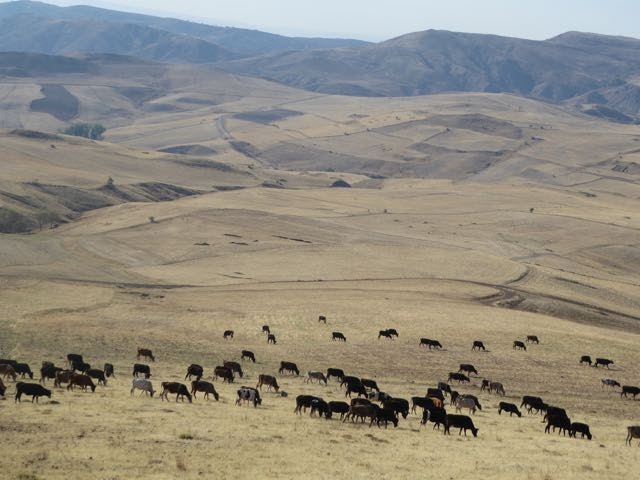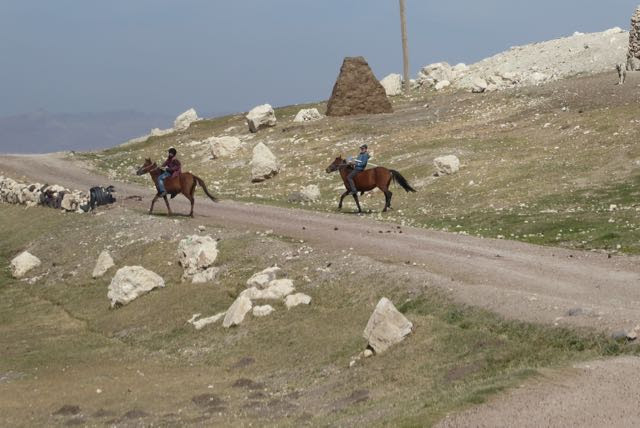The bandage of honor…
Have you read about South Korea’s craze for cosmetic surgery? The ideal look is that of a living doll. Tiny, v-shaped jaws, large eyes with double eyelids and carefully dimpled smiles are all the rage. These are women in their late-teens and early twenties whose desire to look different has turned South Korea into the most cosmetically enhanced country in the world.

But hold on. S. Korea has some competition half way around the world: Iran. The first time I spotted an Iranian woman walking down the street in full nose bandage I was in Zanjan, part of Iranian Kurdistan. I figured she’d been in a car accident. Then I began noticing more such bandages, seeing some everyday, on men AND women. So I researched it and talked to some locals. Here’s what I discovered :
Up to 40,000 cosmetic surgeries take place in Iran each year, per the Iranian Association of Cosmetic and Plastic Surgeons. Of those, more than 60 percent are nose jobs. That puts Iran among the top 4 countries in the world for new noses (email me if you want to know the other three), modifying from the proud dorsal bump on the bridge to something, well, more South Korean!! Or should I say new South Korean… thin bridge, upturned button at the tip… like a doll.
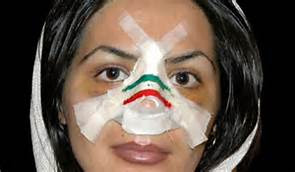
Everyone I asked agreed that promenading the streets with your nose bandage on is a status symbol. In fact, those who can’t afford a nose job will self-apply the bandages to simulate one. You can imagine what a relief it was for me to dwell on something as a-political as nose jobs, especially after those road blocks and armored personnel carriers in Turkey.
Iran is the 18th largest country in the world. Its landmass is equal to at least two Frances, the concept of which is pretty frightening, because imagine having to eat twice as much Escoffier cream sauces and listen to double Johnny Hallyday. Its 80 million citizens are highly educated, as befits one of the world’s oldest continuous major civilizations. Remember that when you read ‘Persian Gulf” those aren’t just syllables. They’re referring to Persia as in Persian Empire, testimony to the fact that Iran has held sway over that region and a whole lot more for more than two millenia.
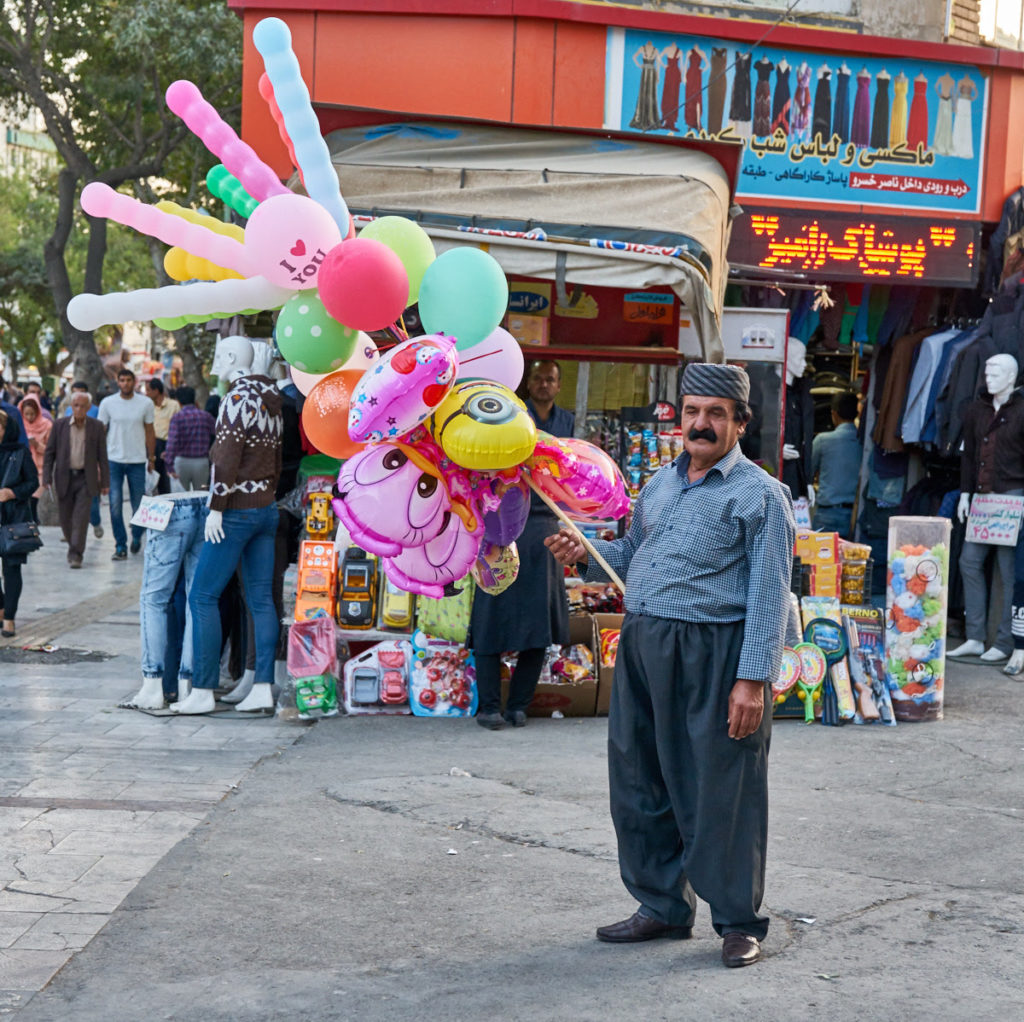
Which is to say, do not confuse Iran with Arab countries. It’s not Arab. It’s Persian. Different language, different physiognomy, different version of Islam and very different food. Women are an integral part of the society, working in all areas. Here’s the thing though: stats say that unemployment is 12%. But our acquaintances on the street said it’s more like 50% and I believe them. Iran has, no secret here, been hard hit by decades of sanctions. Most all commerce stems in one way or another from the government, as there’s little trade (leaving out opium, of which more later) to nourish entrepreneurship. Since the largesse of that government shifts with the whims and connections of each new president, it’s tough, if not impossible, to build a reliable business of anything.
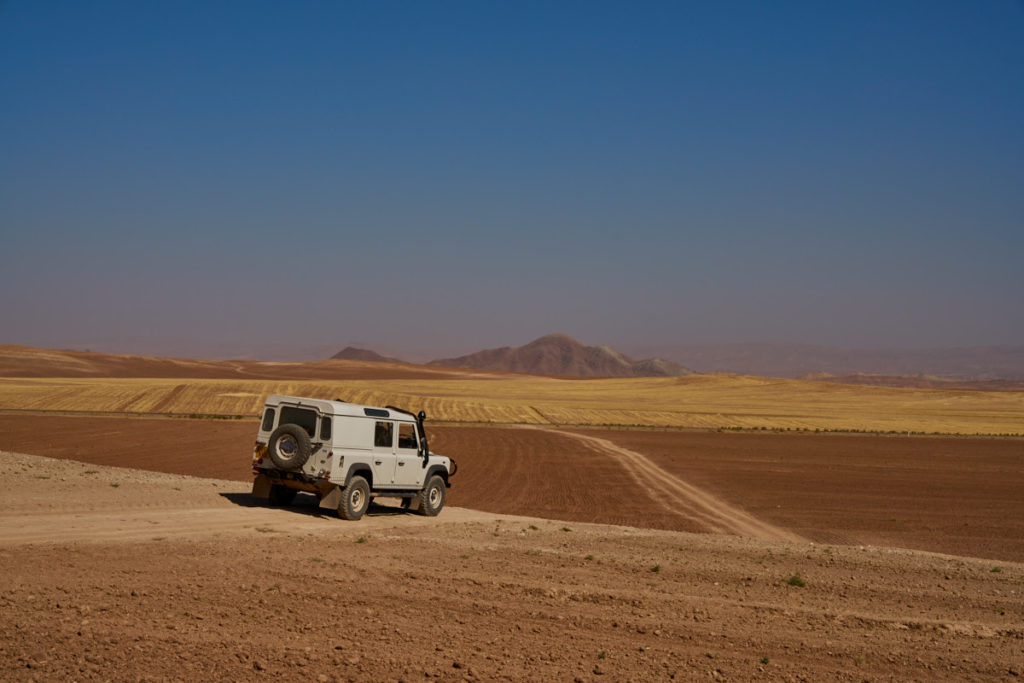
Yet the country bustles. There are roads being built everywhere, with concomitant gravel pits also found everywhere. Hundreds upon hundreds of square miles of gently rolling ground below those haggard mountains is plowed chocolatey earth, or harvested golden stubble, despite the near total absence of tractors or combines. Cars, many of them French, zip heedlessly along the highways between cities, causing a horrifying 800+ deaths a month. Iranian drivers are by far the worst we’ve ever had the honor to drive among. And they admit it! No, they laugh about it!! Were those real Peugeots and Renaults? NO!! They were fakes: a genuine Peugeot carapace over a Chinese interior and engine. As our Iranian acquaintances said, it’s really easy to tell the ersatz from the authentic: the former break down irretrievably after a few thousand miles.
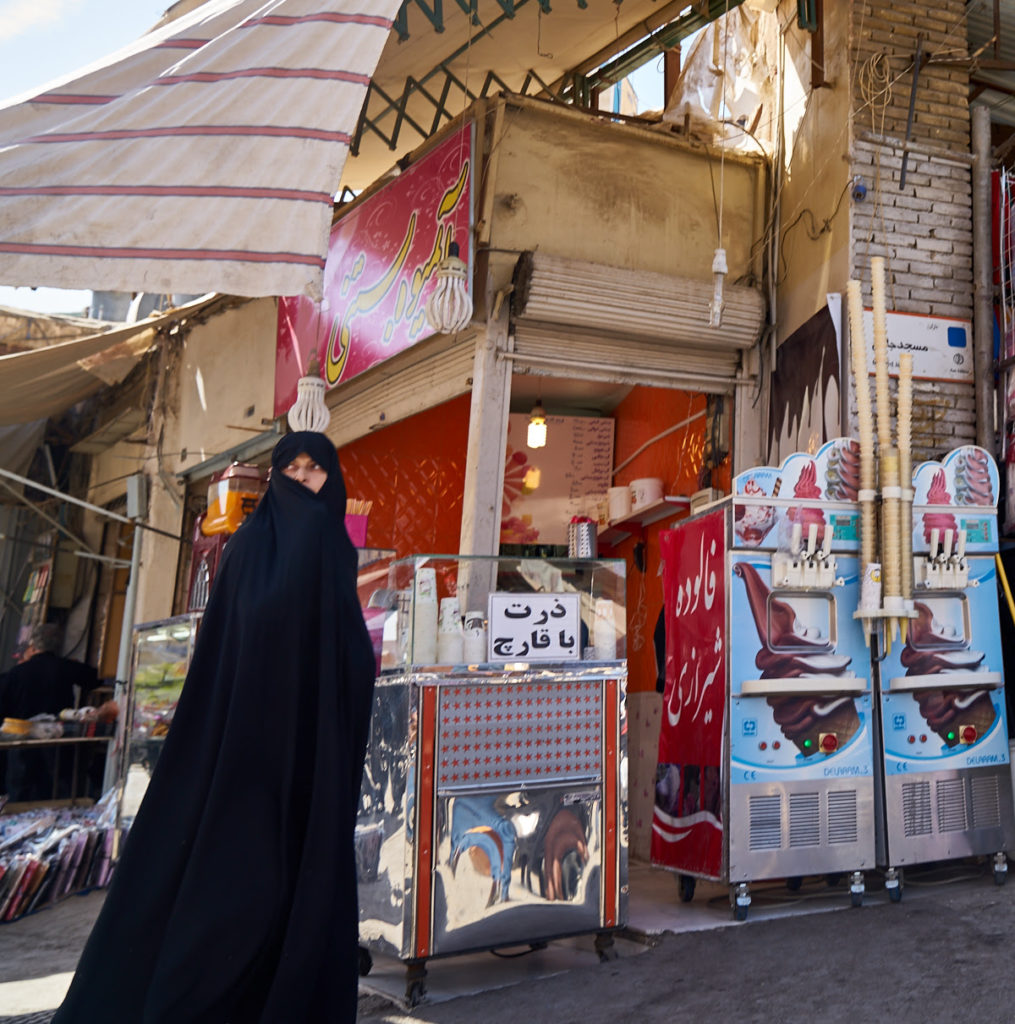
Despite our long days in the car, or perhaps because we never stopped except for fuel and an occasional lamb heart kebab en route, we often had time for a stroll through the main bazaar at our day’s destination. Consider these the equivalent of a town shopping mall, a sequence of interwoven arched stone alleys selling everything from children’s shoes to kitchenware to the usual melons, squashes, tomatoes and everywhere, pomegranates.
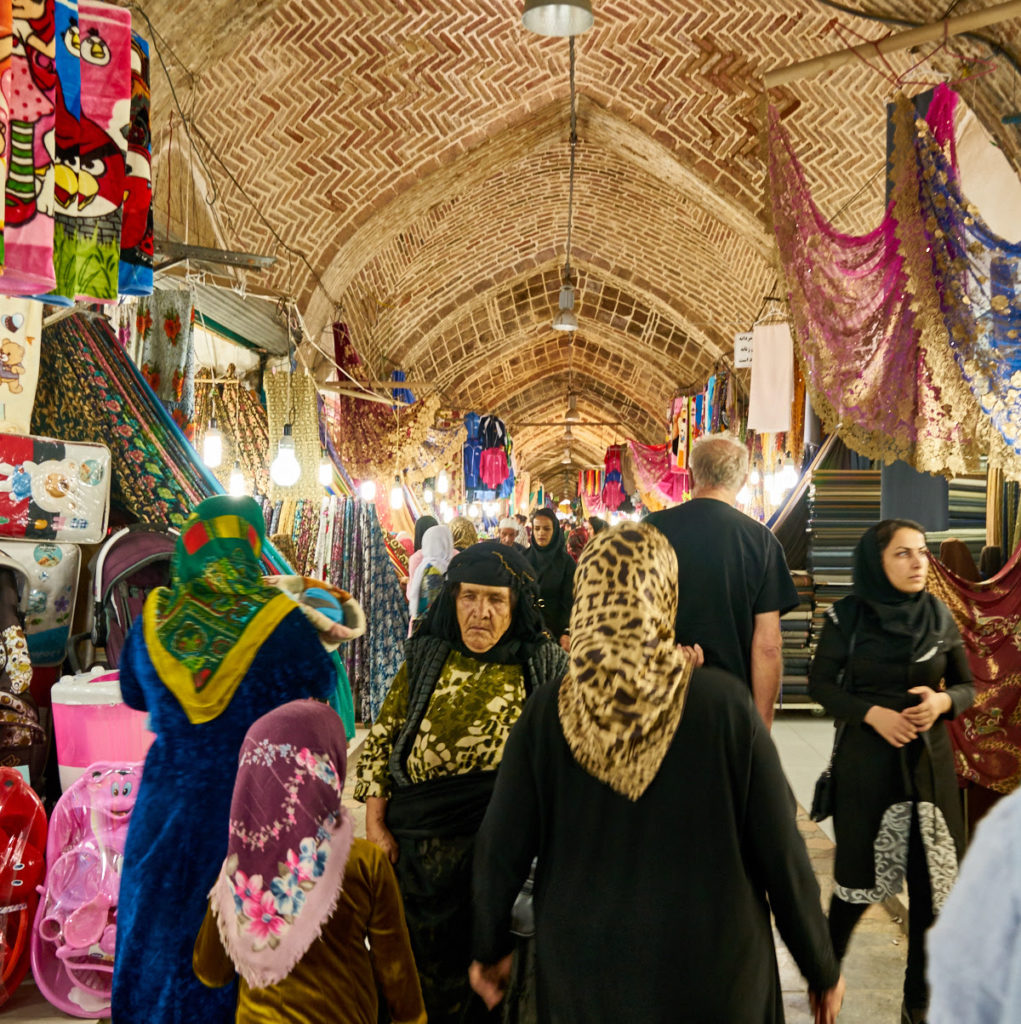
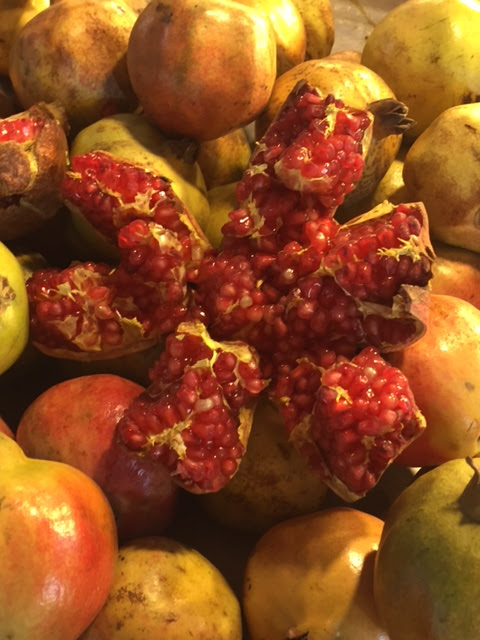
We met extraordinarily open and generous people in our two weeks in Iran. University students, a city clerk, a software entrepreneur from Tehran, a civil servant, a combine driver and his entire family, a woman hurrying from the bakery home who tore off a hunk from her gorgeous fresh load when we saw us ogling it. And others. If there’s a primary trait of Iranian people I would have to say its intelligent curiosity. And hospitality. And warmth. And culture. OK that’s four. You get my point. And if you don’t, let me make it explicit: Iranians are an unusually erudite and big-hearted people. Would that we were all so.
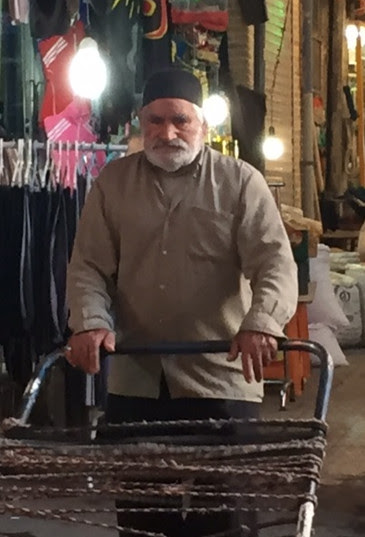
Whether in a bazaar or on the street, without exception we would have a young man or two sidle up behind Bernard to announce, with a gracious smile, “Hello, how are you?” followed quickly by “May I walk with you?” From this would ensue an hour or two of interesting conversation as we walked around, or stopped for tea together. I absolutely cherished each of these encounters, as they provided our main, no our only, contact with Iranians. And each one resulted in a invitation to come home.
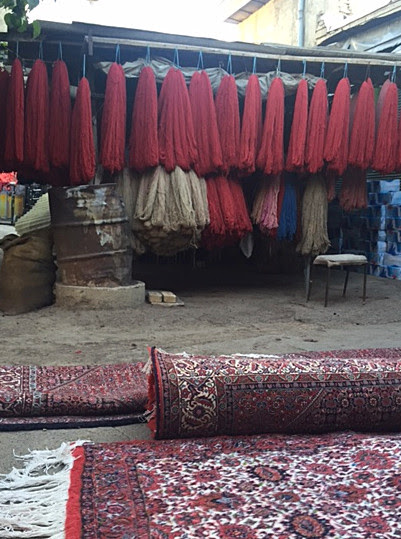
Part of me felt like the pound puppy of the day, so fervent were their entreaties and so desirable did it make me feel. Every invitation, whether “My parents would be honored if you would have dinner with us,” or “Please come and stay in our village home for a few days,” was genuine, and seemed packed with both a longing to engage with foreigners and a deeply felt strain of hospitality that would not let said foreigner escape without giving him or her something of oneself.
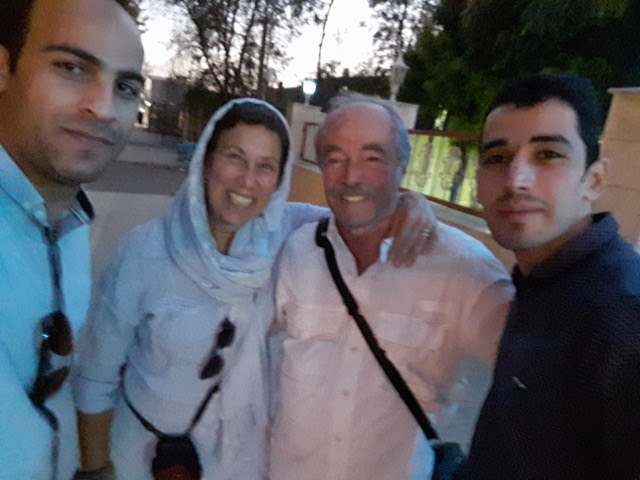
What with Persia being such an exquisite empire, there are huge numbers of antiquities to be inspected, but we saw hardly any. That was due primarily to the route we were assigned, which burgeoned from the promised 340km to a monster 550km, which took minimum 8 hours. This left lots of time for fretting about whether we’d arrive before dinner, but little time for ambling among fallen columns and impressive carvings.
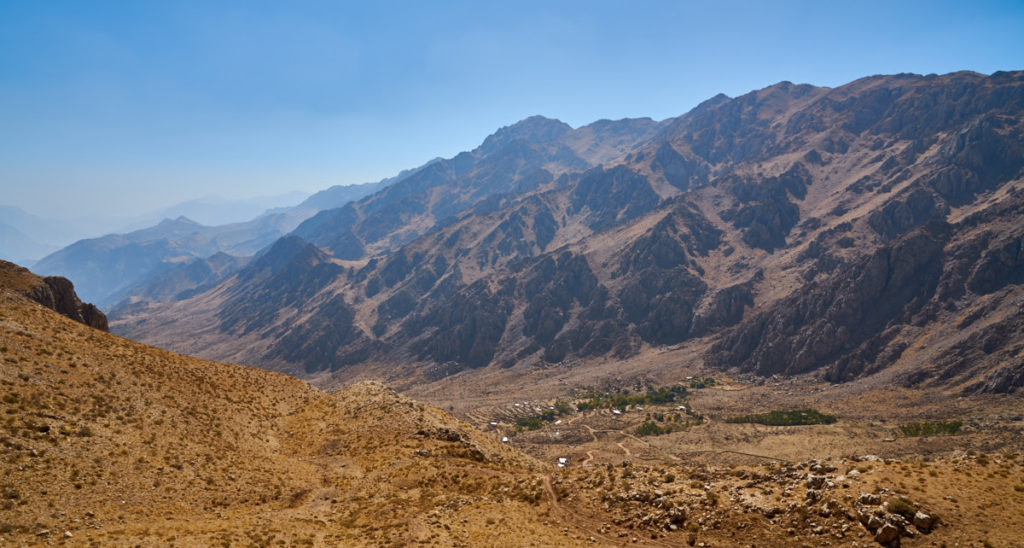
What we saw instead was a broad swath of the country where tourists do not flock, in particular the Kurdish sector next to Iran’s border with Iraq, on the west side of the country. This is rugged extremely mountainous terrain. I’m talking vertiginous brown, barren mountains that are pure rock, pebbles, boulders,—jump right in with every word for “hard, unbreakable substance” that you can imagine.
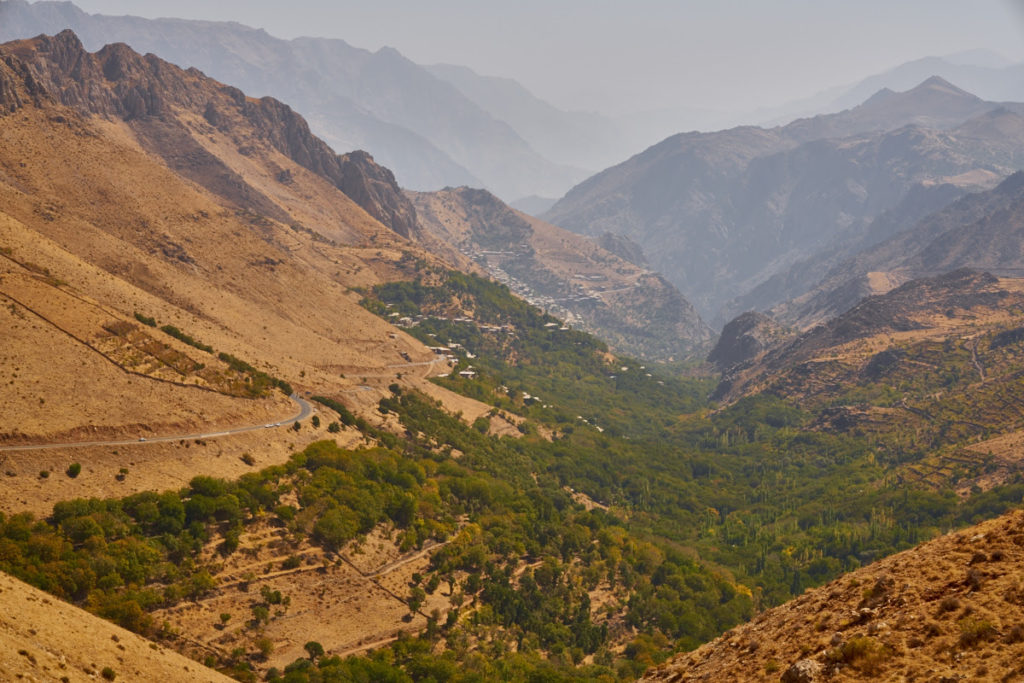
It’s a landscape hospitable to sheep and goats, of which there are a lot, both alive…
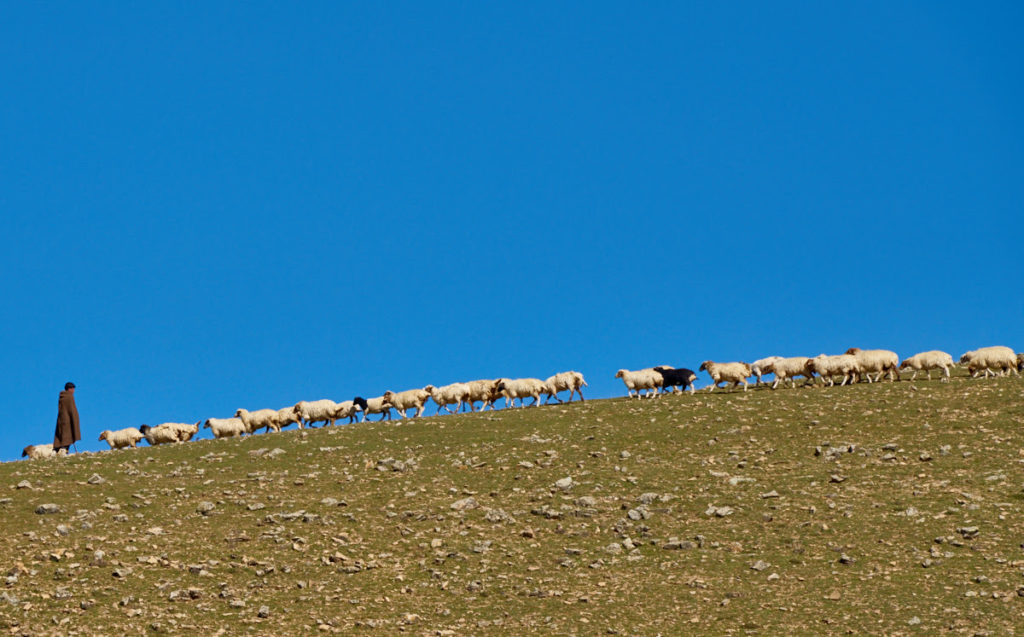
and not so much…
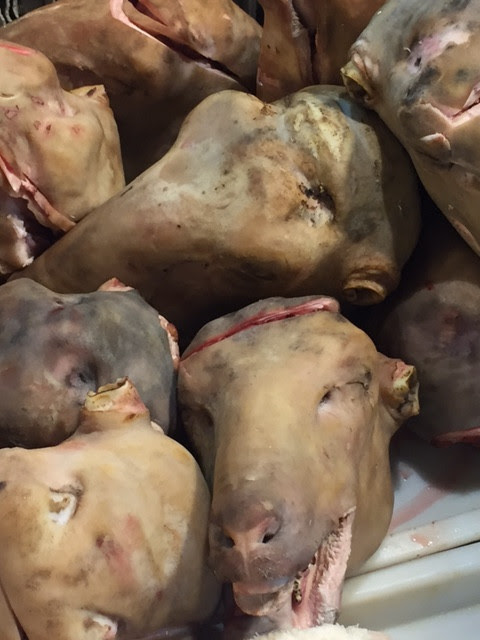
The land we drove through struck me as so hostile to people that I have no idea why emperors would expend human lives to hold onto it. Then again, Iran is so strategically placed, providing access to the open sea from the Caspian, and needing to be traversed by any trader from the Far East who wished to reach the Adriatic, that the prettiness of its landscape may not have been part of the decision matrix when Darius III mused “Keep it? Or see if that upstart Alexander wants it?” I speculate that perhaps the generous nature of the Iranian people is in direct proportion to the ungenerous land where they live.
For ten years now Iran’s been suffering from a drought which is as devastating in its local impact as it is far reaching in its longevity. Entire river beds have been dry as sangak for eight years. In Isfahan the noble bridges of antiquity span cracked ground on whose shore unused pedal boats wait for the one day a year water is released from an upstream dam to create the majestic river that once was.
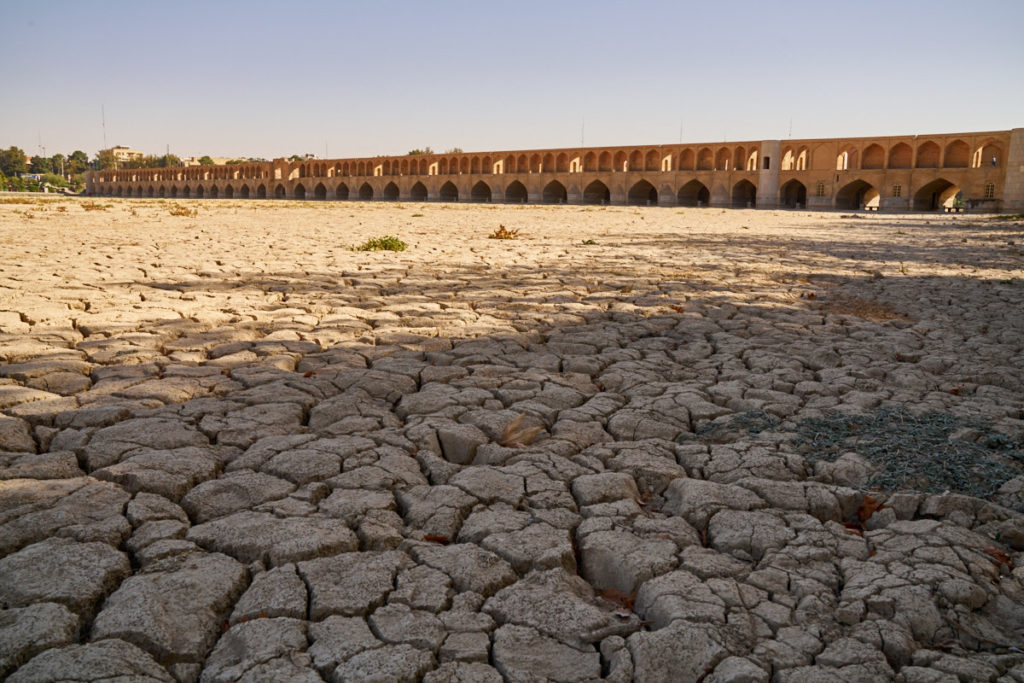
We were in Iran during the month of Muharram, second holiest month after Ramadan. One particular day marked the festival of Ashura, when fountains ran red to mimic the blood of the martyr, entire villages blocked the streets, (through which we had to pass, of course, in order to get where we needed to go) with the men in slow procession dressed in black and smeared with mud, a mordant banging of drums competing with blaring chants. I found it all vaguely threatening, though in fact it was a day of remembrance and sadness. But then we stopped to help one of our group repair their disabled car on the outskirts of one such town. While we offered moral support, tools and mechanical chops by the roadside for an hour, no fewer than four cars stopped, every one of which gave us food, or invited us to their home, or both.
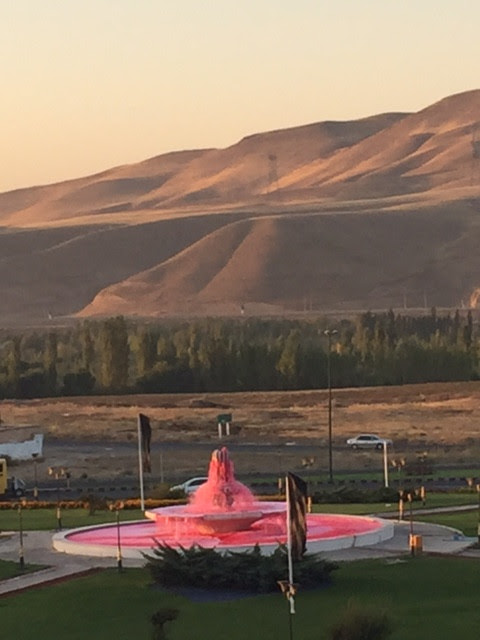
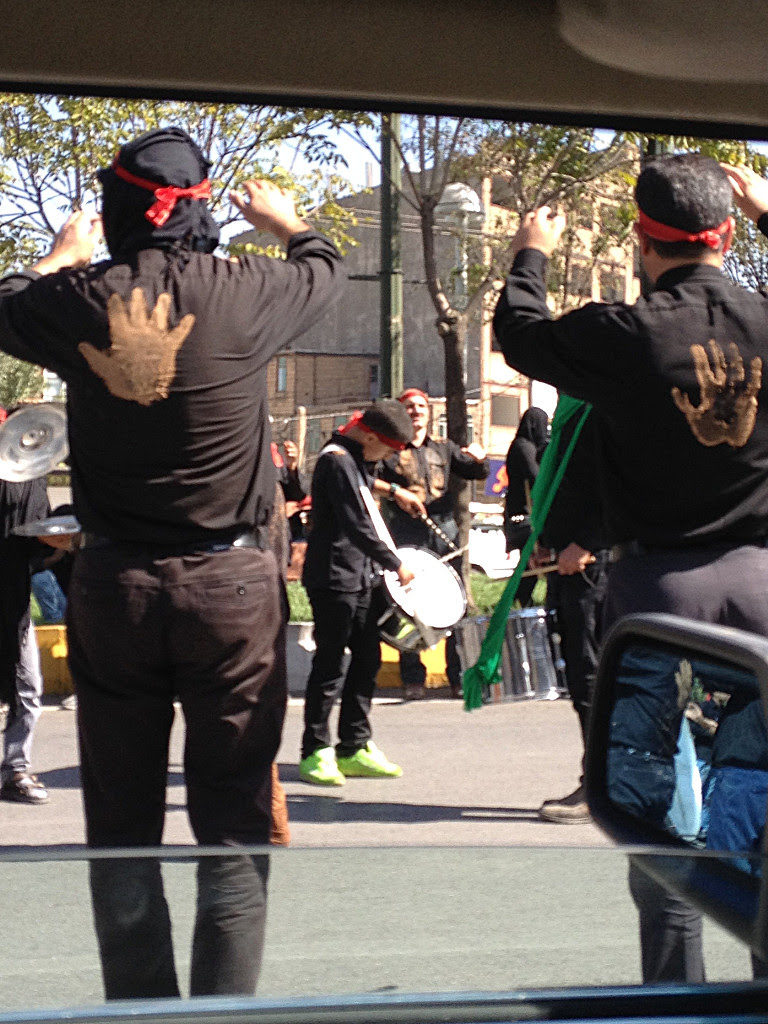
In the old village of Ghalad, just north of Shiraz, we walked up cobbled lanes, past the garden of an old woman. It’s shallow canals were choked with yellow leaves. Apologizing for having nothing to offer us in her home, she picked a handful of small apples and a pomegranate for us instead.
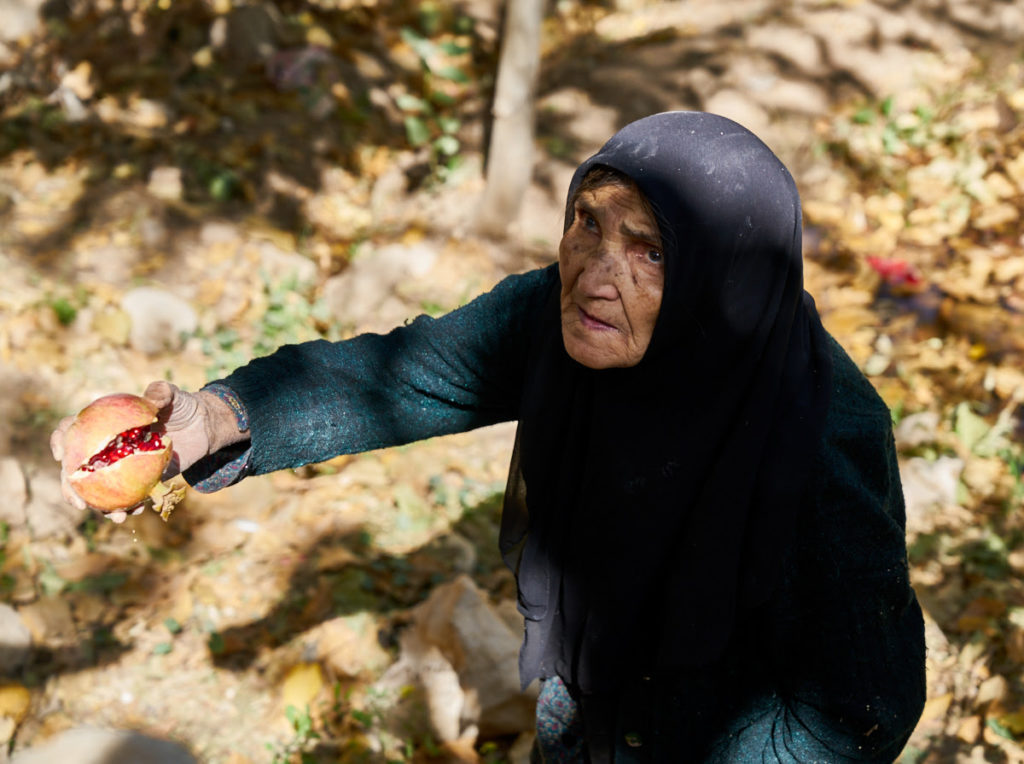
And then we found Shahpur. Lovely Shahpur, teashop owner and opium addict, who gave us tea, taught Bernard the truly proper way to smoke a qaylan (hookah), declaimed the poetry of Hafez, and shared his utterly delicious, intensely savory pot of dizi (lamb stew) with us, too. Because of Shahpur I learned that opium is weighed in reference to a chickpea as measure, and that smoking it three times a day, as an addict will, wreaks havoc on your teeth. There’s a whole story on that afternoon alone, which I think may appear in my next book, due out this fall.
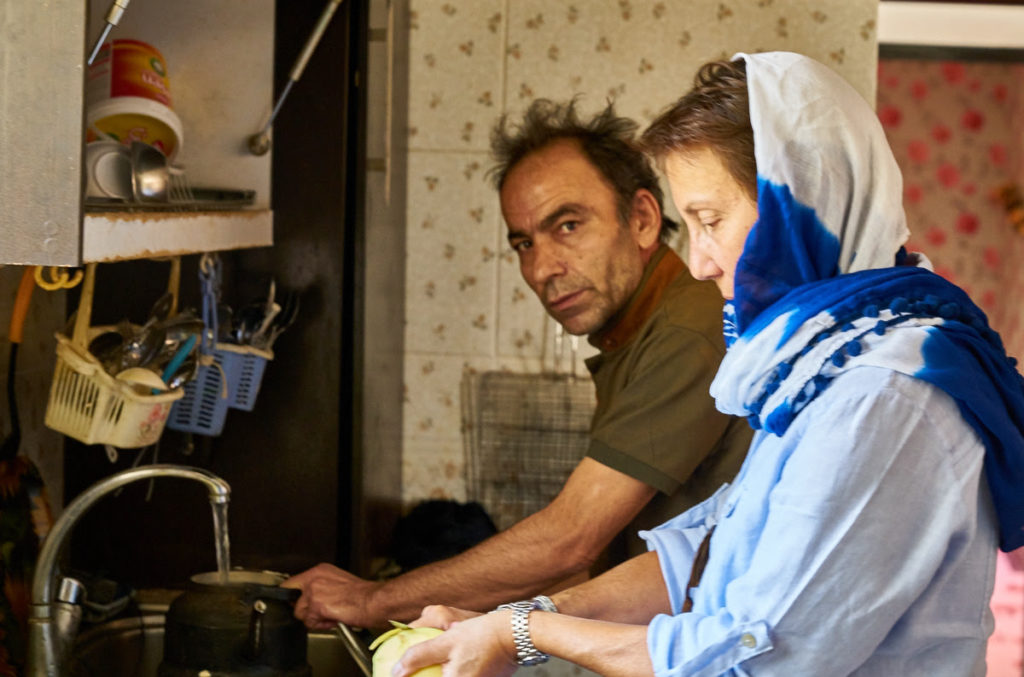
We did have a couple of spare days each, in the uber-historic cities of Isfahan and Shiraz. The mosques were fabulous and beautiful,
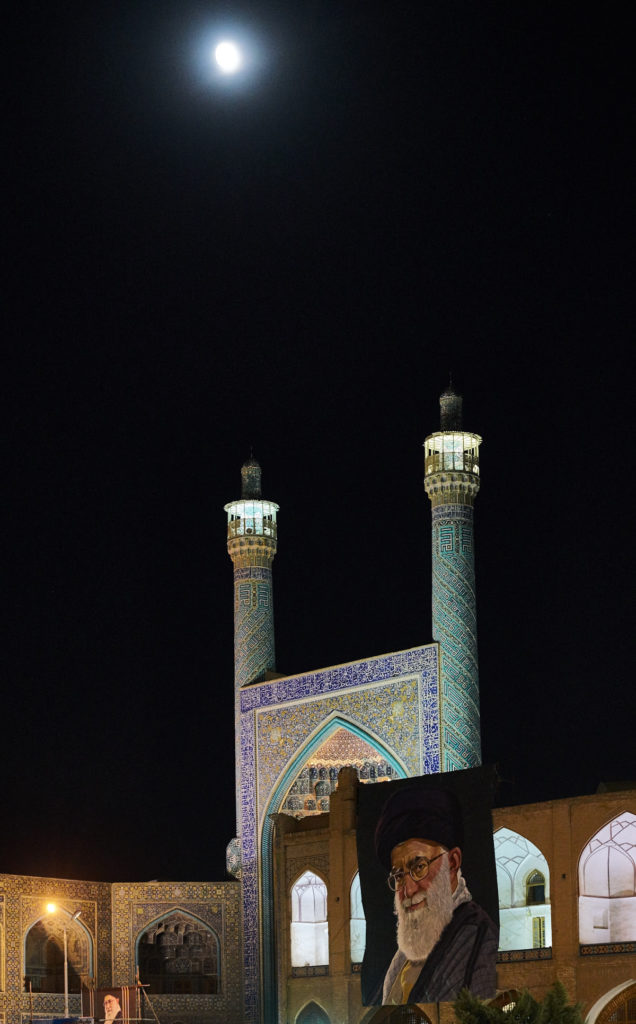
and no one stops you from making yourself at home in them…
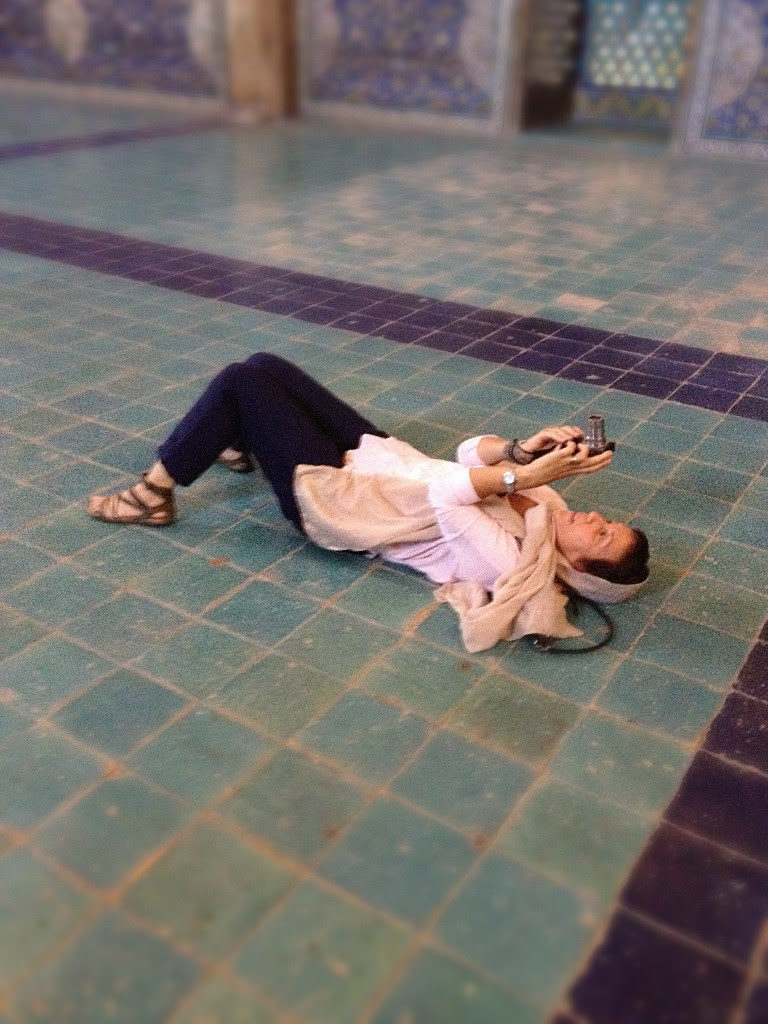
yet somehow they did not captivate me. I guess I prefer encounters with people to viewing of monuments where, despite that I did things that I probably should not have, and despite the omnipresence of Ayatollah Khomeini and current supreme leader Ali Khameini, no one bothered me.
